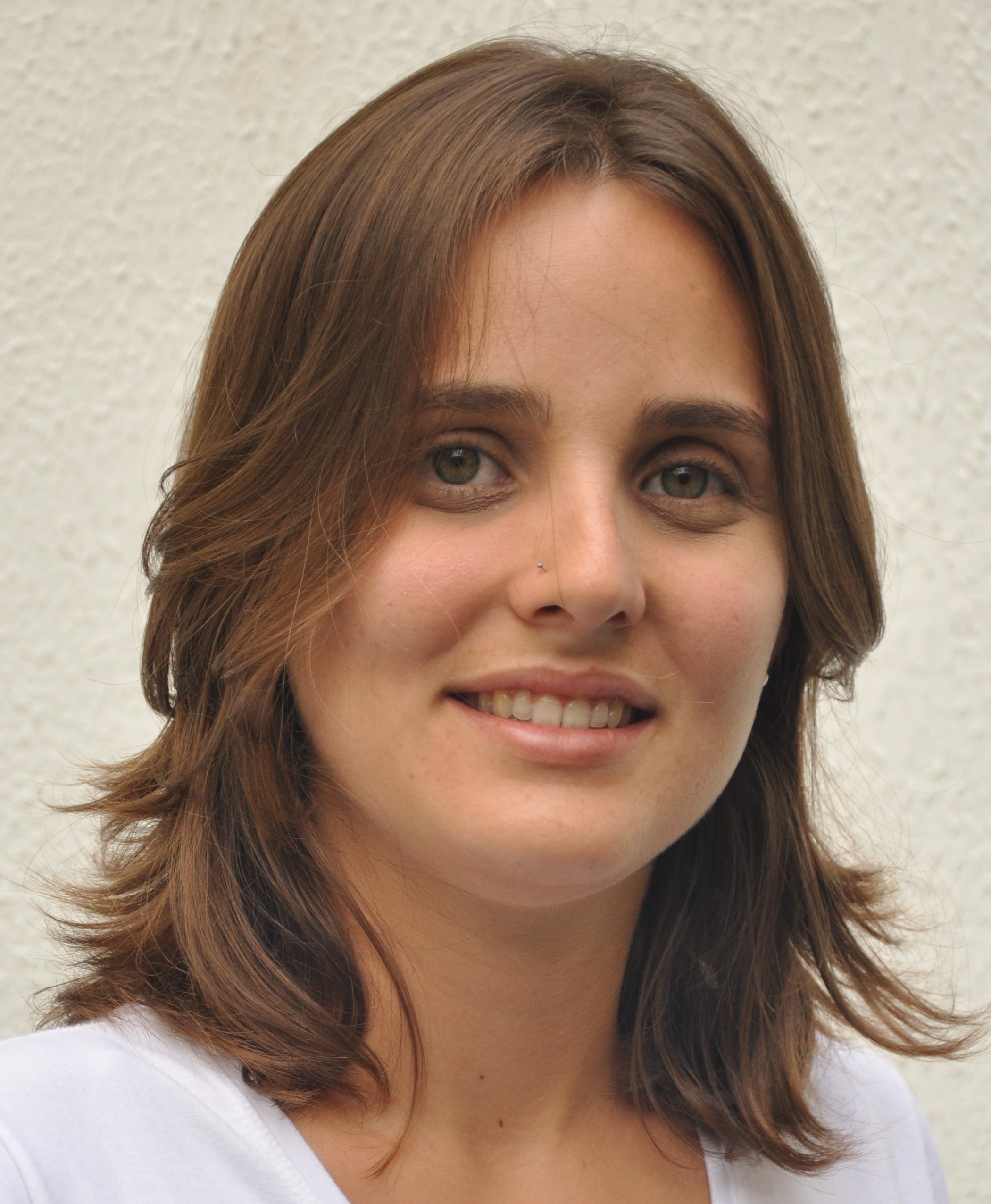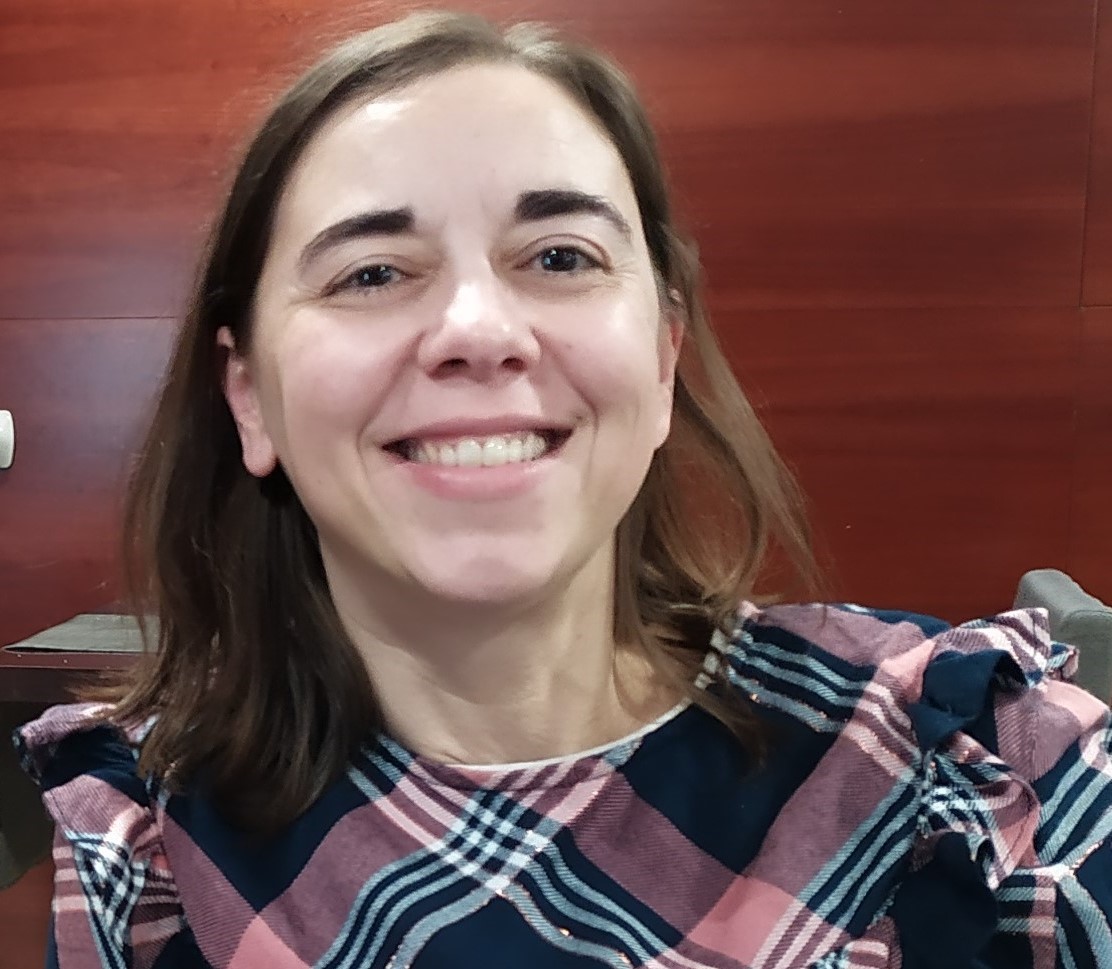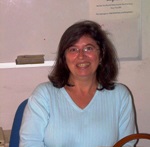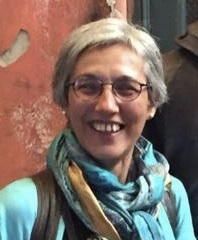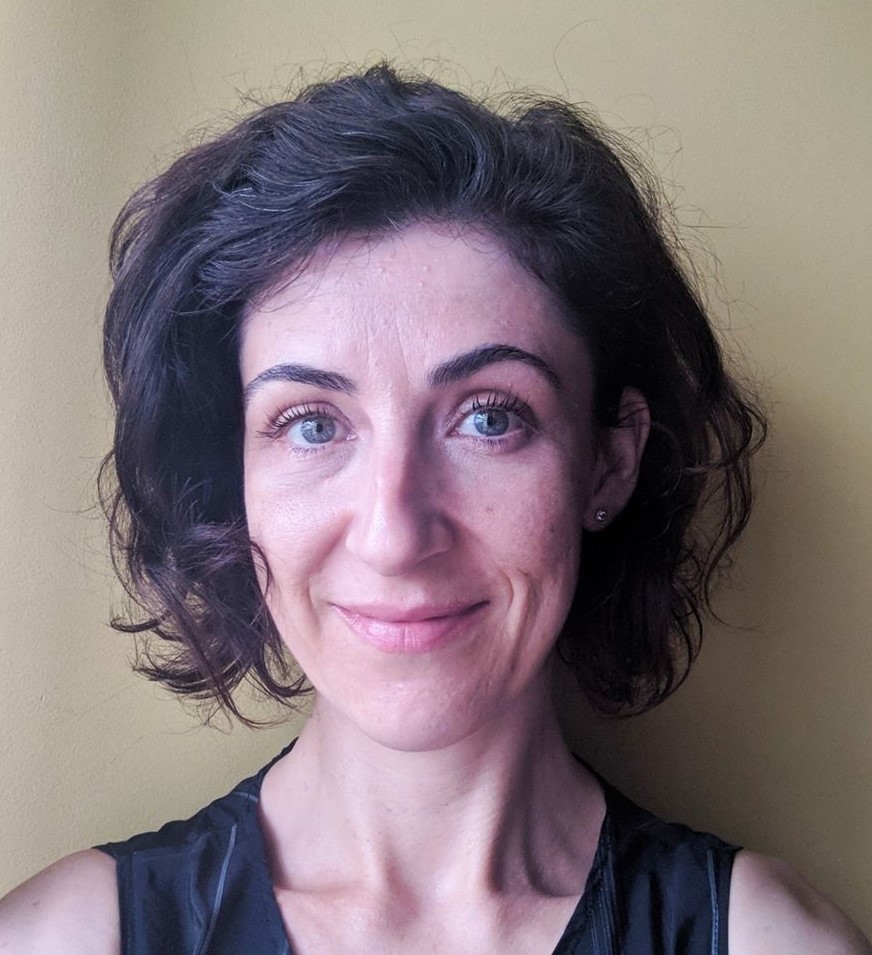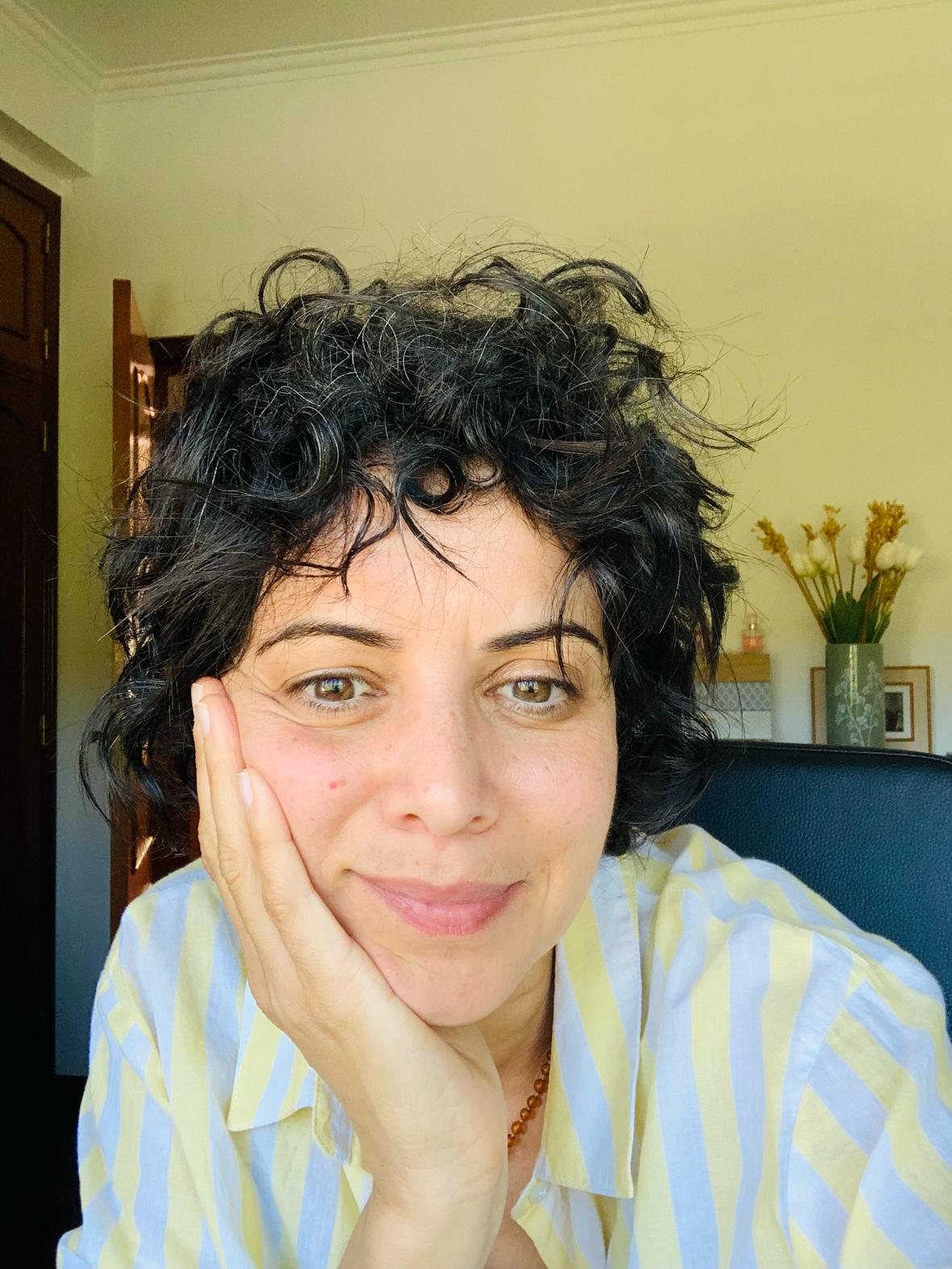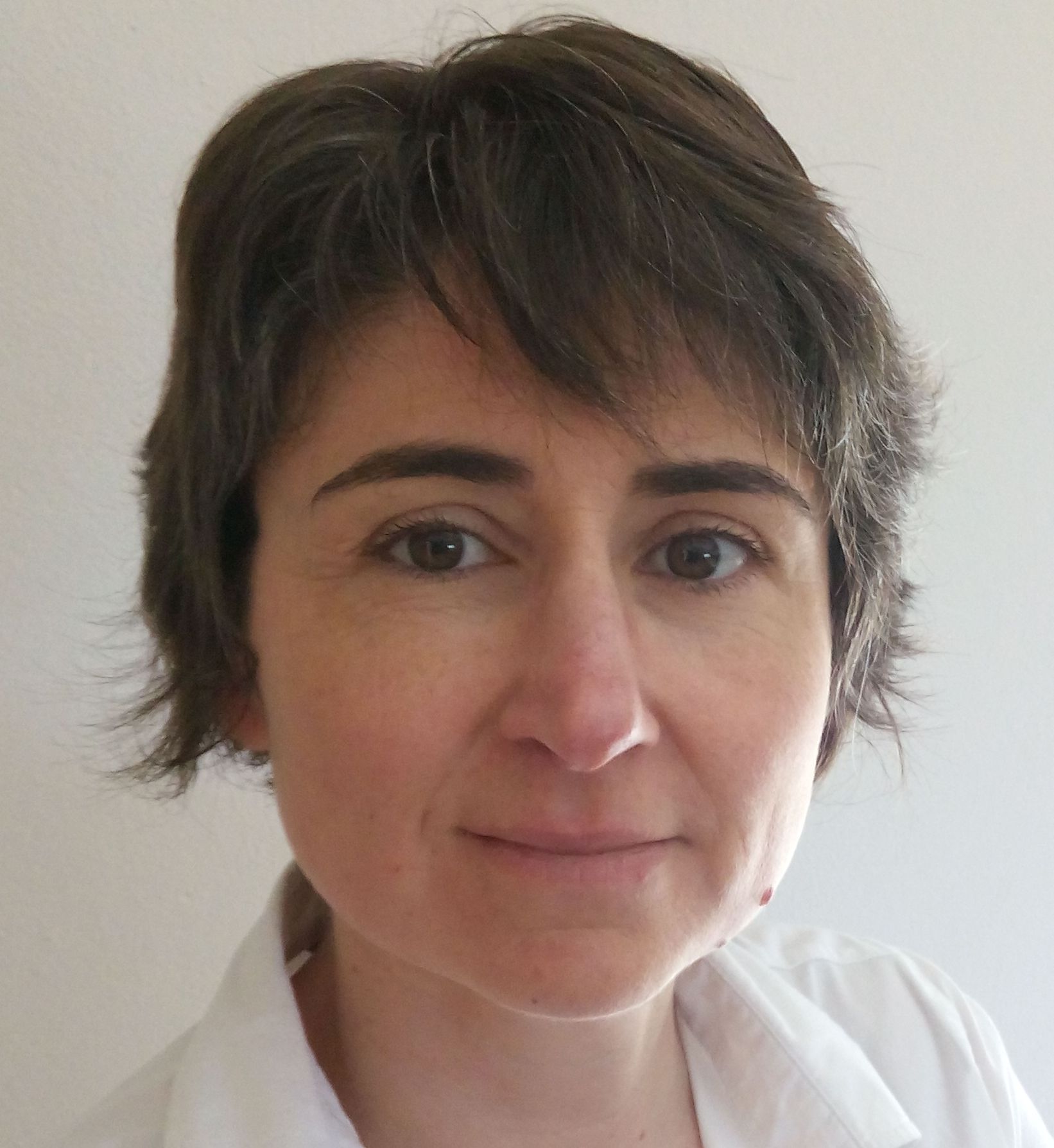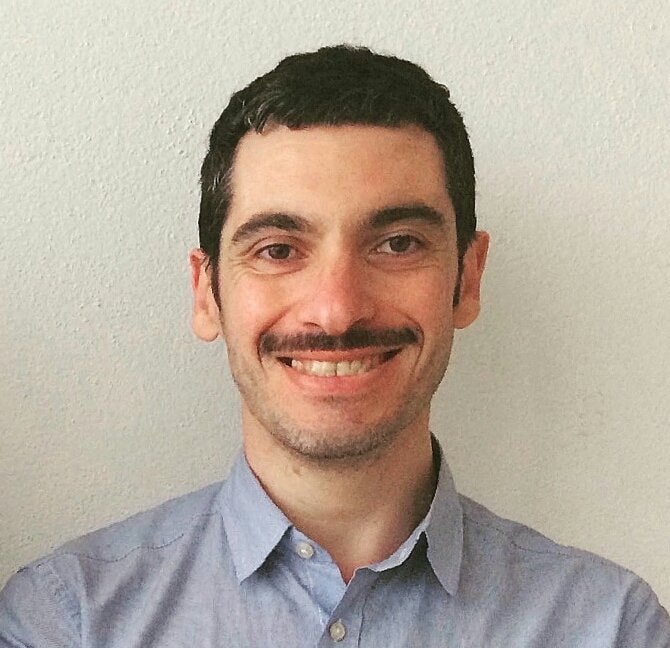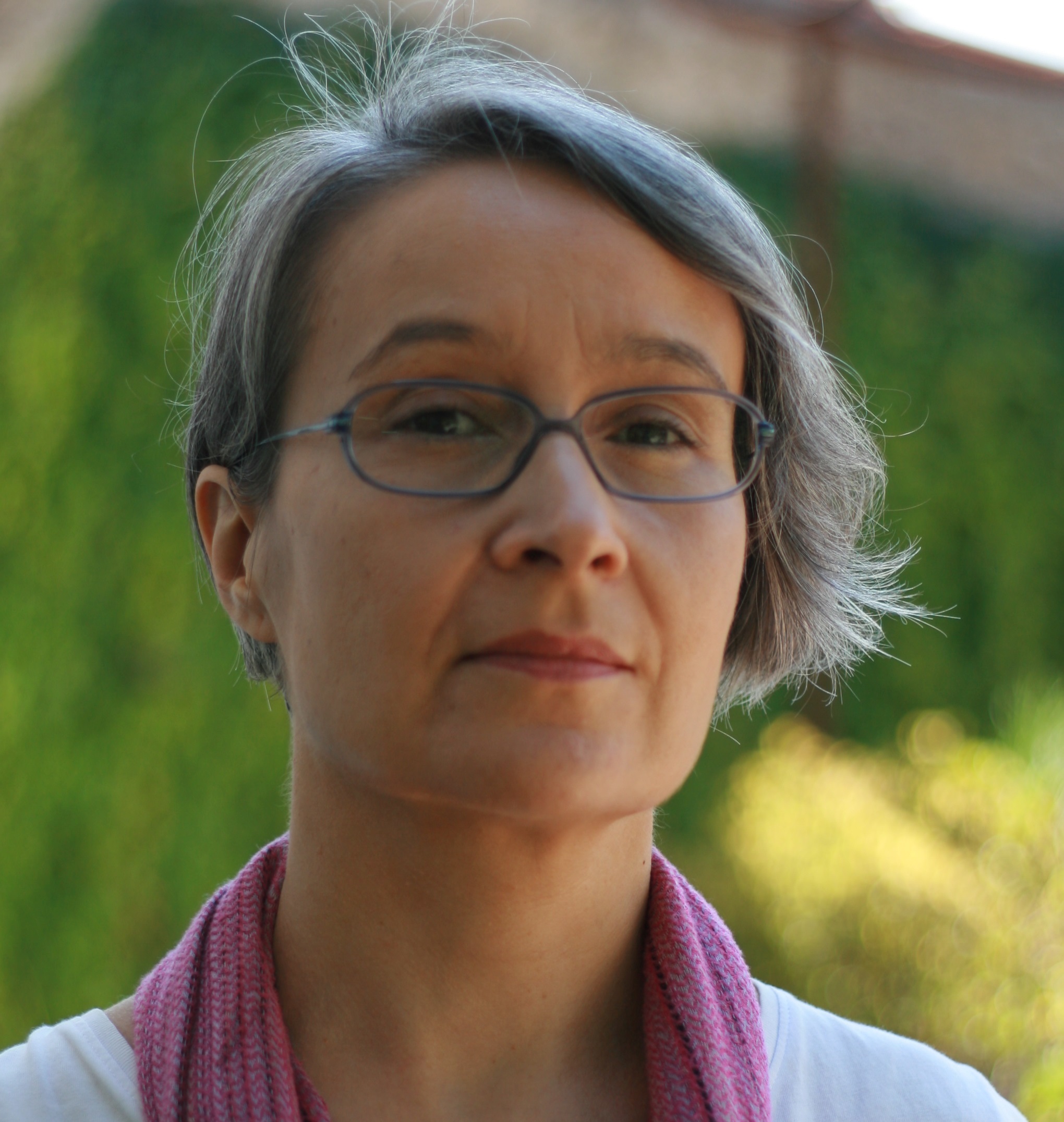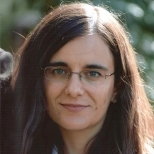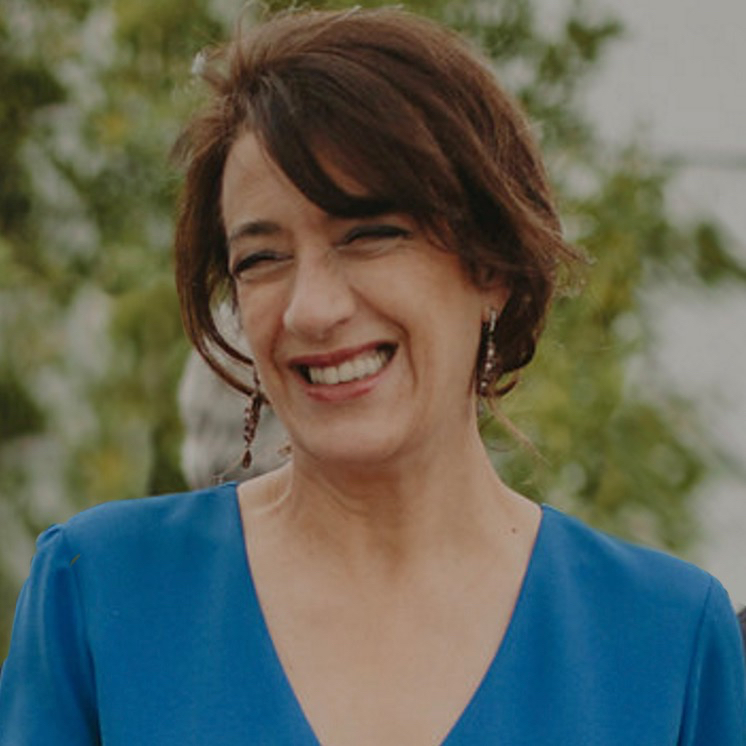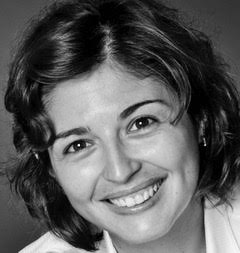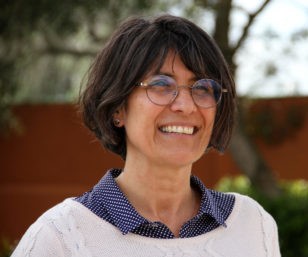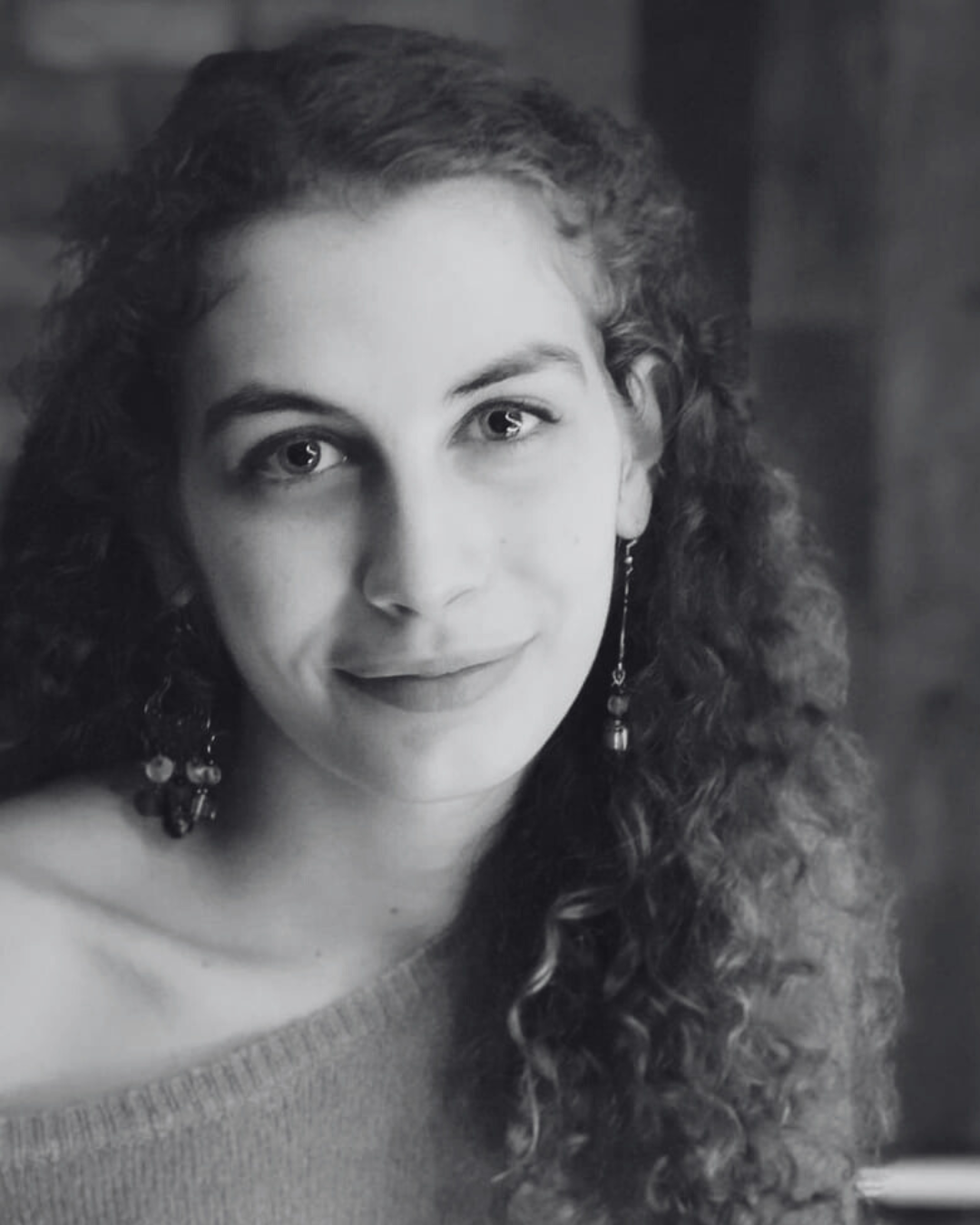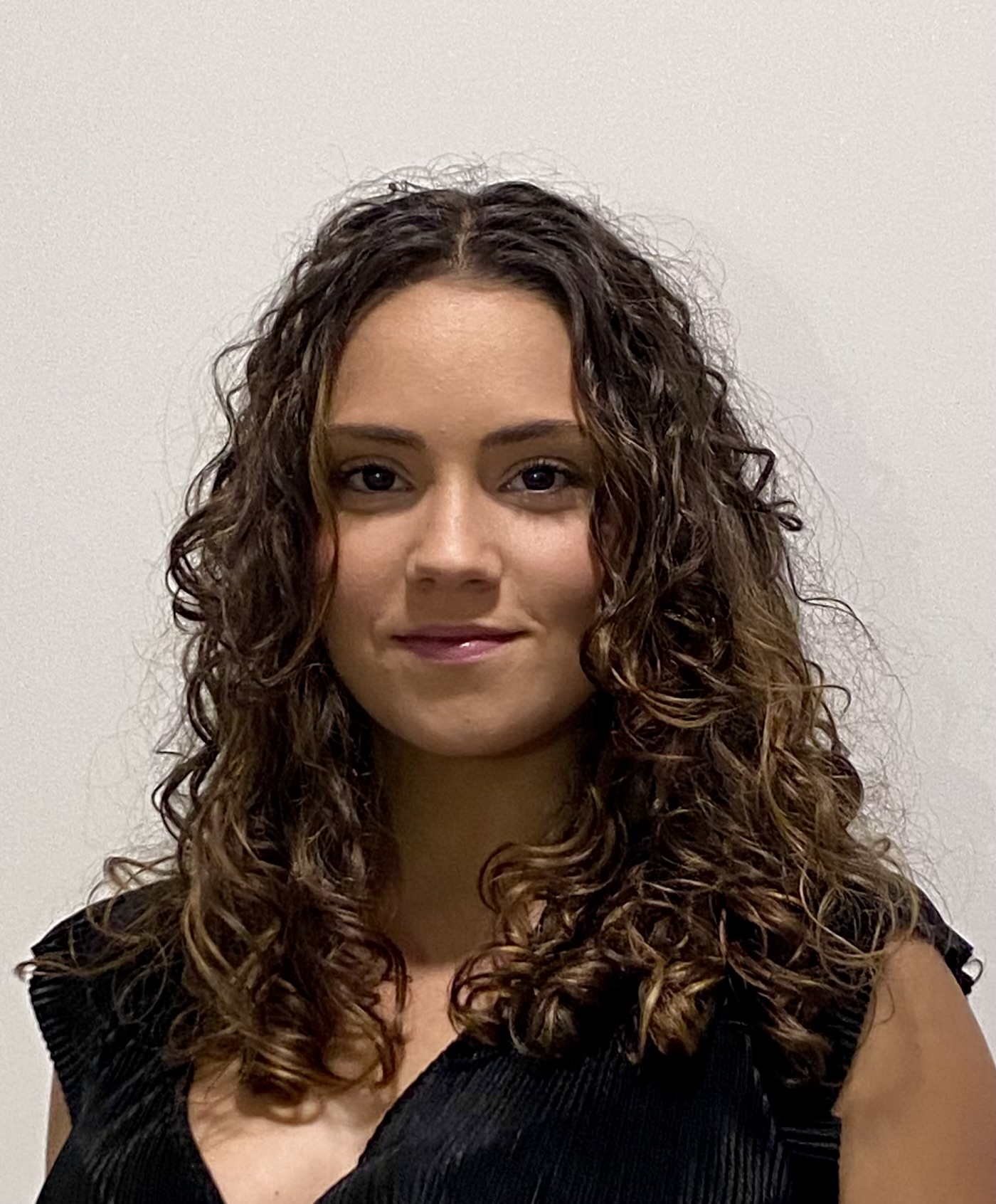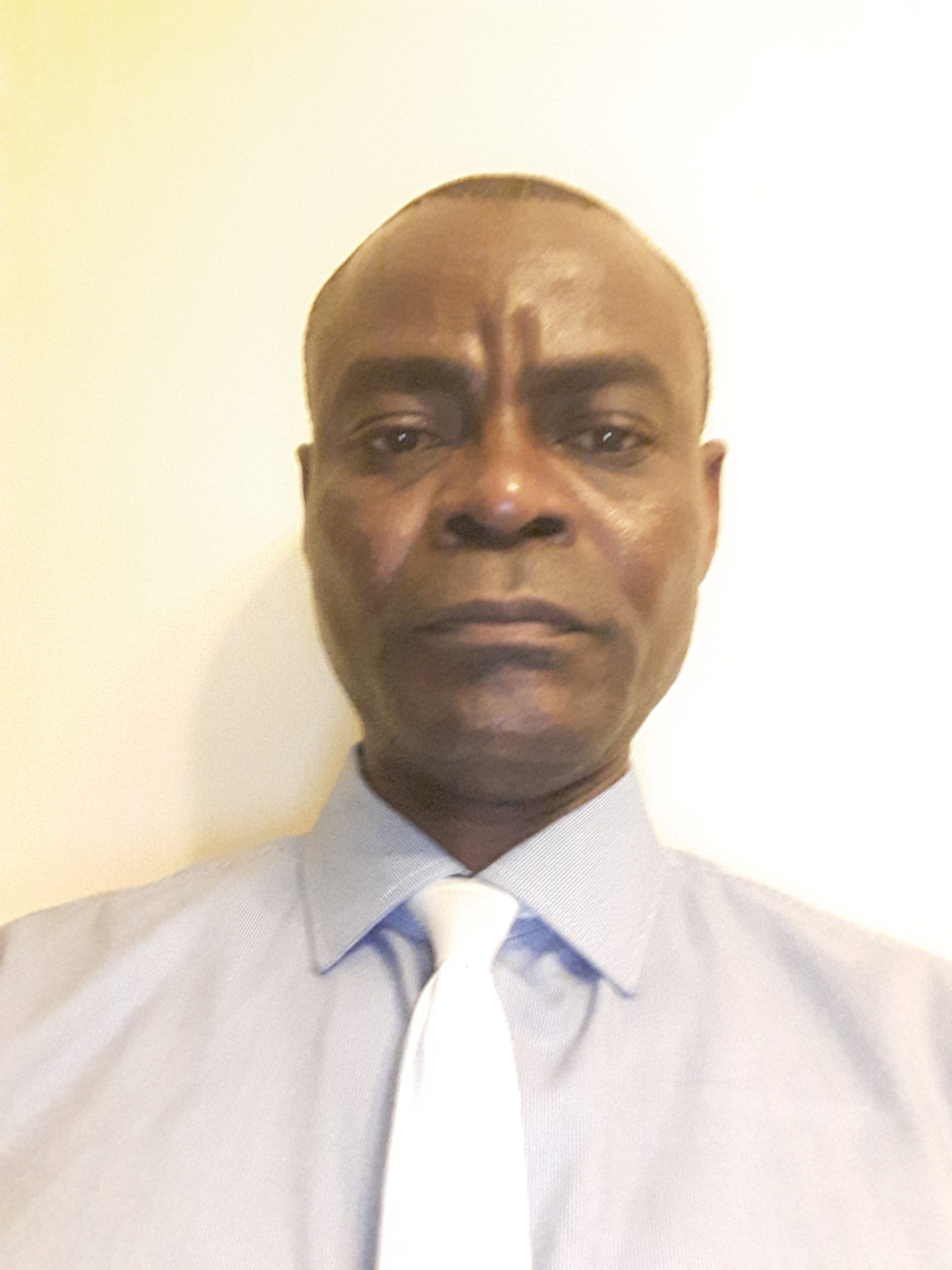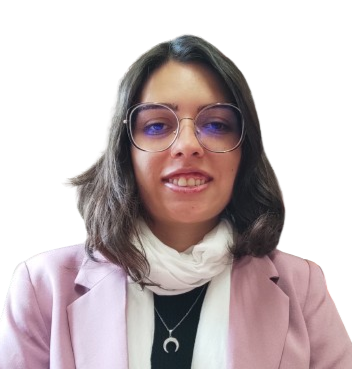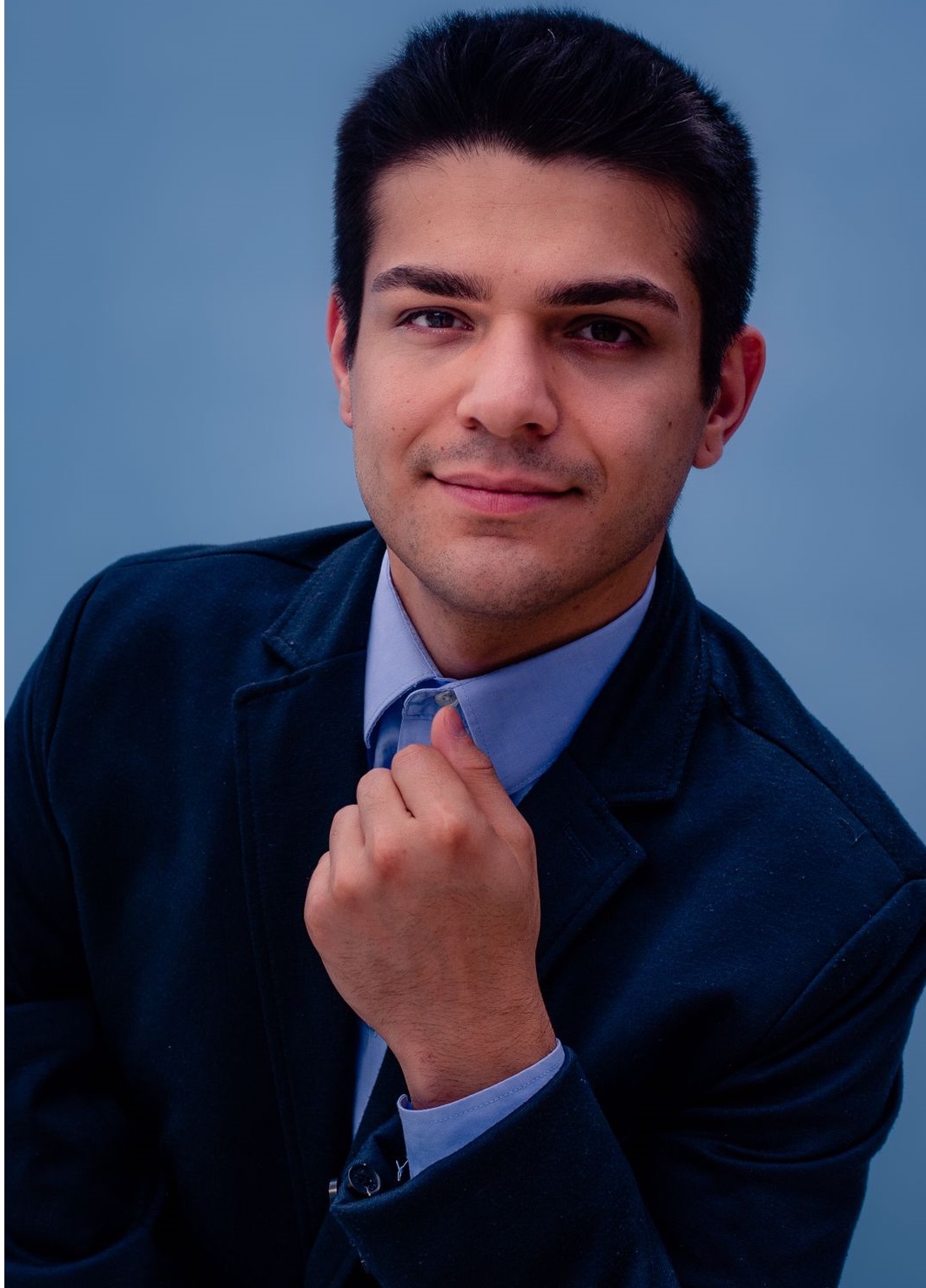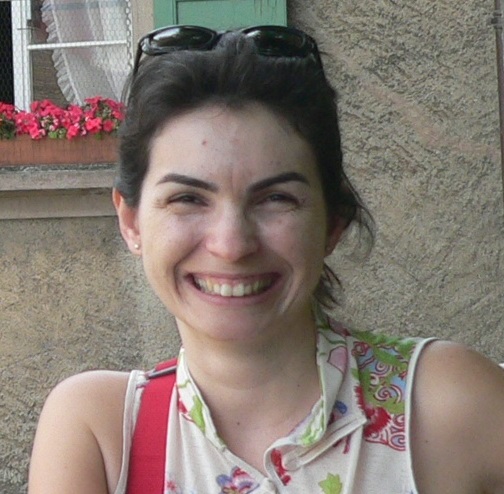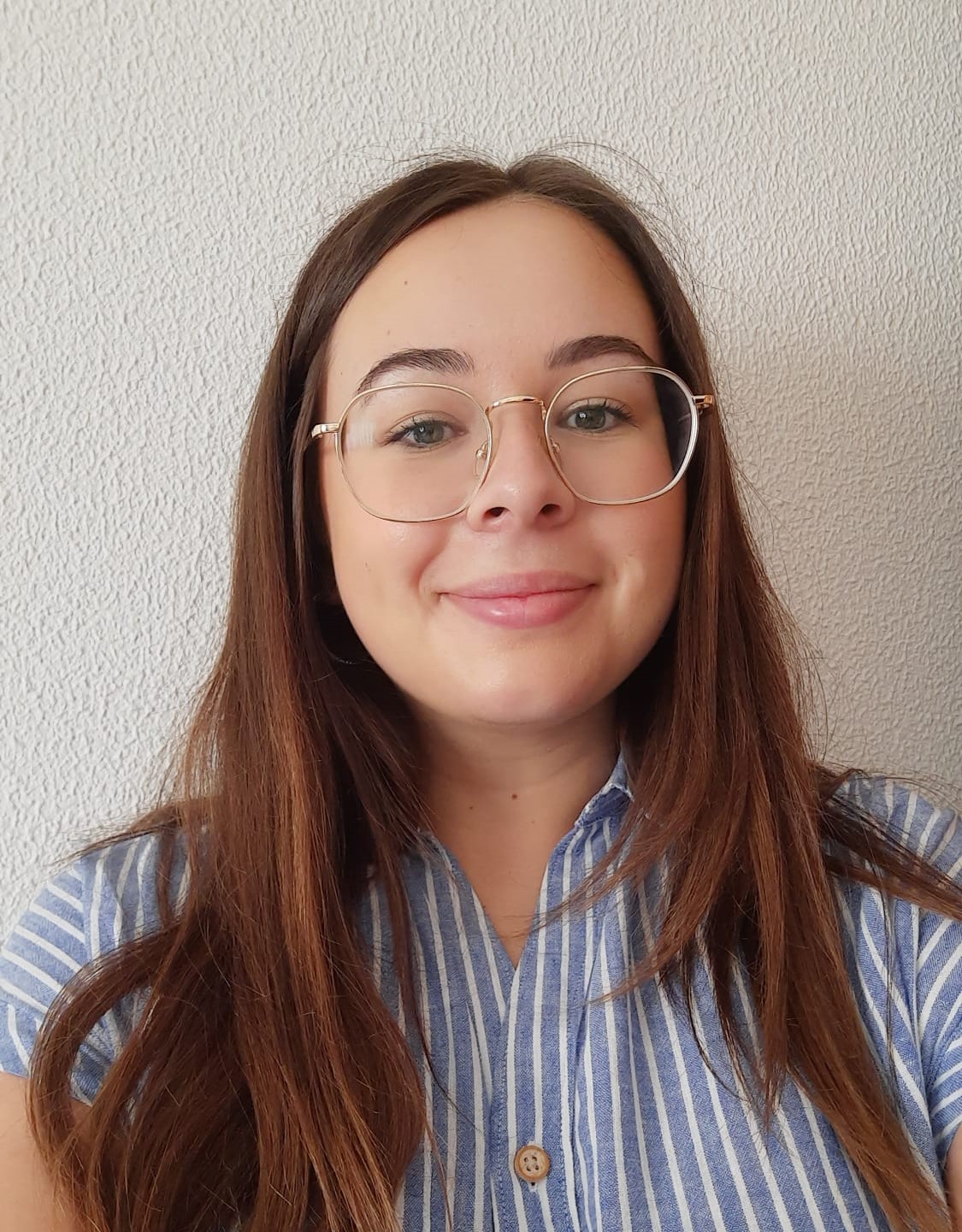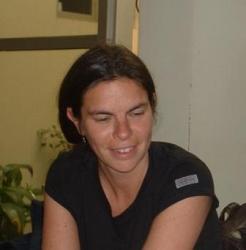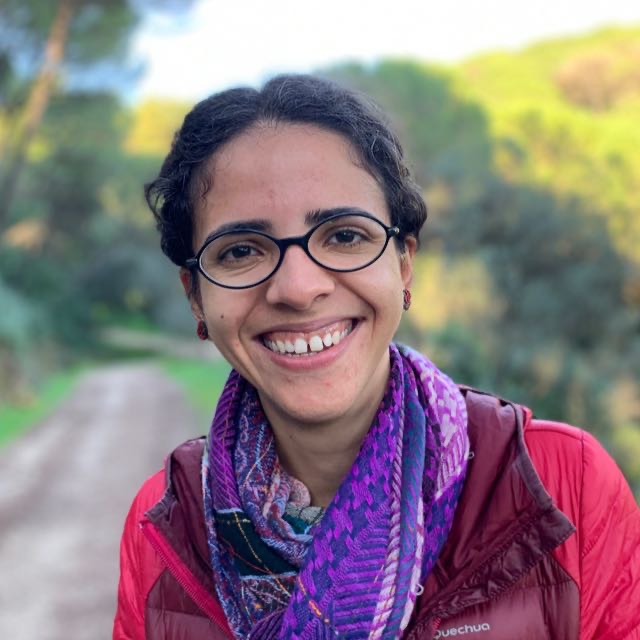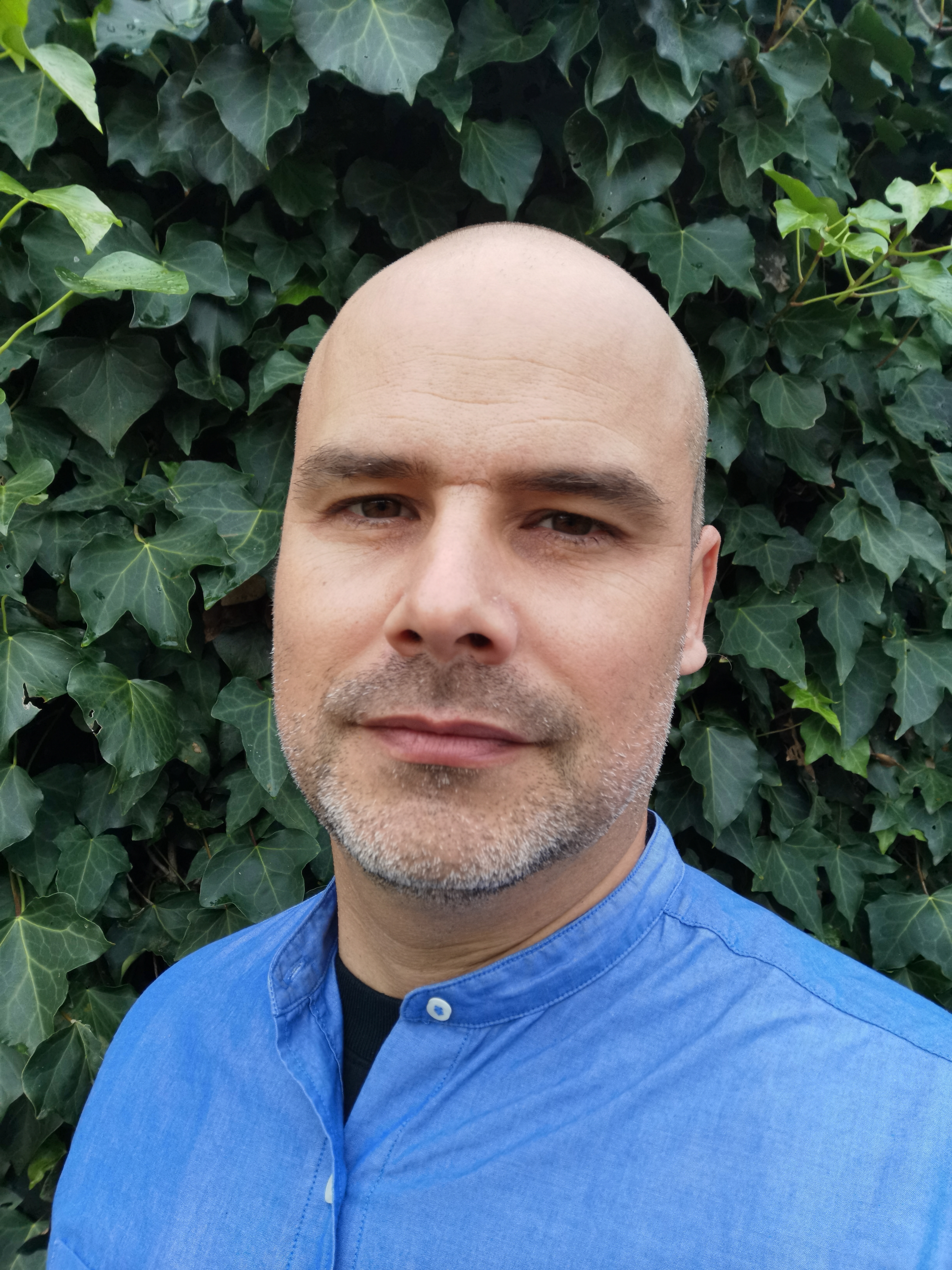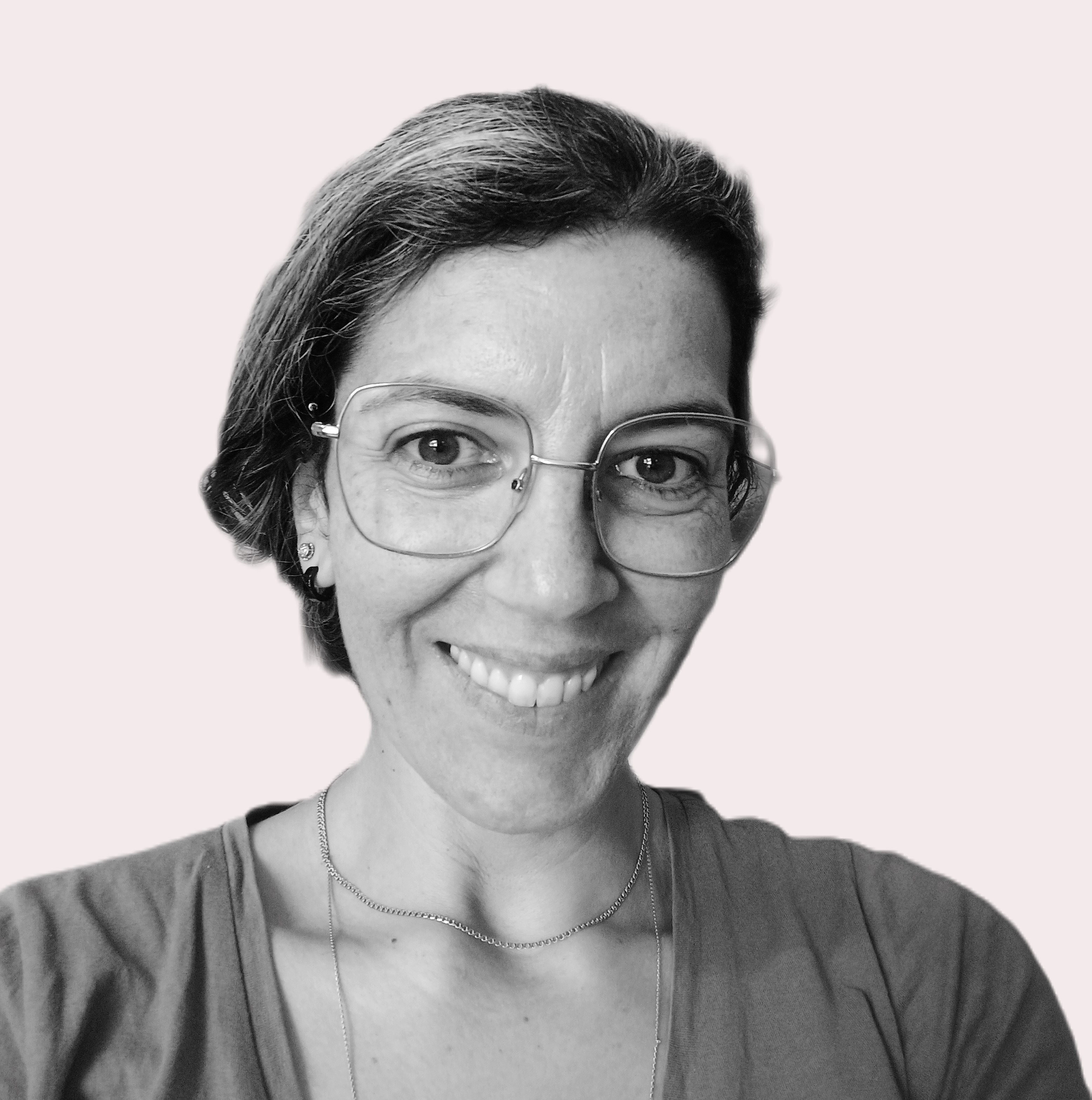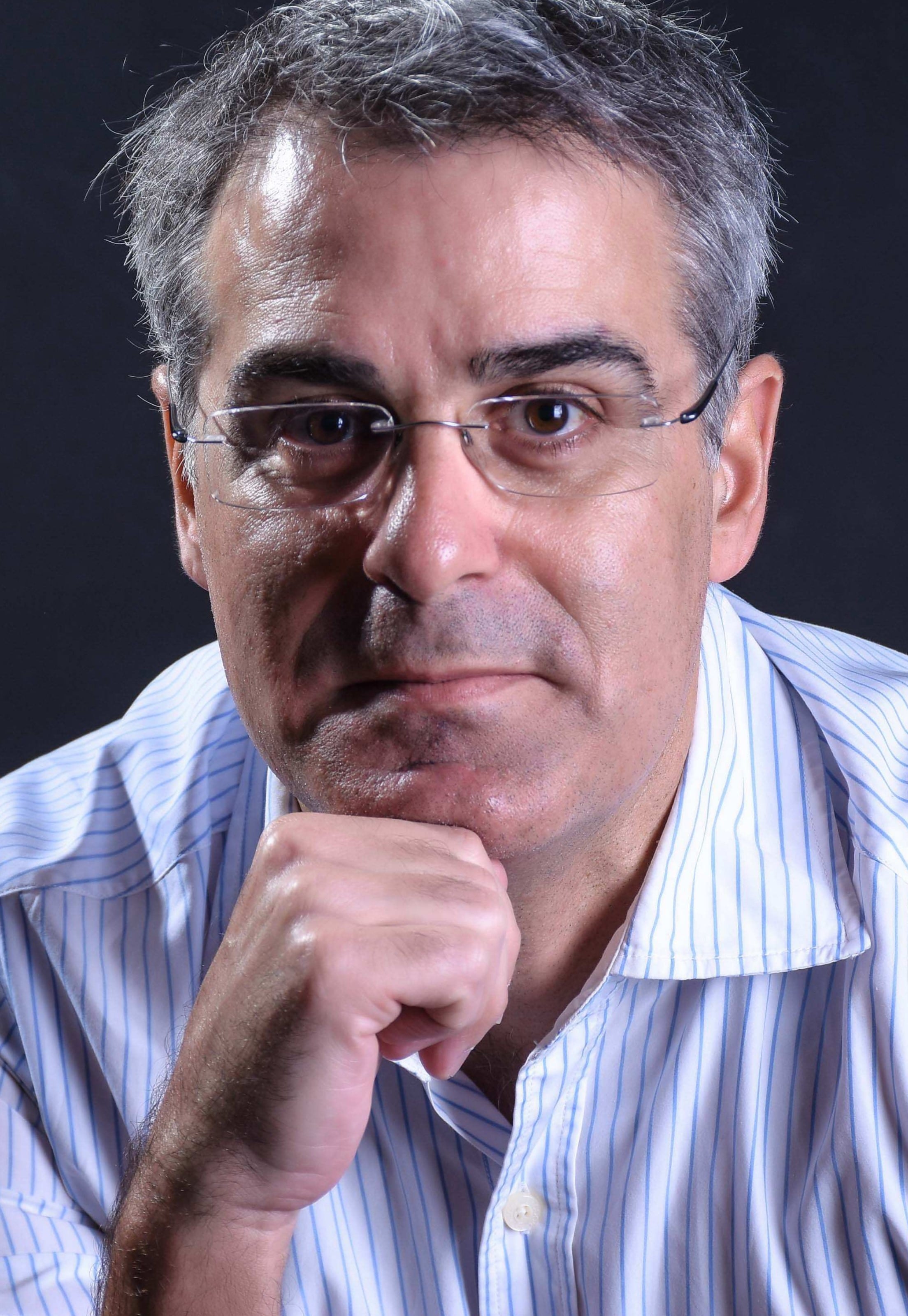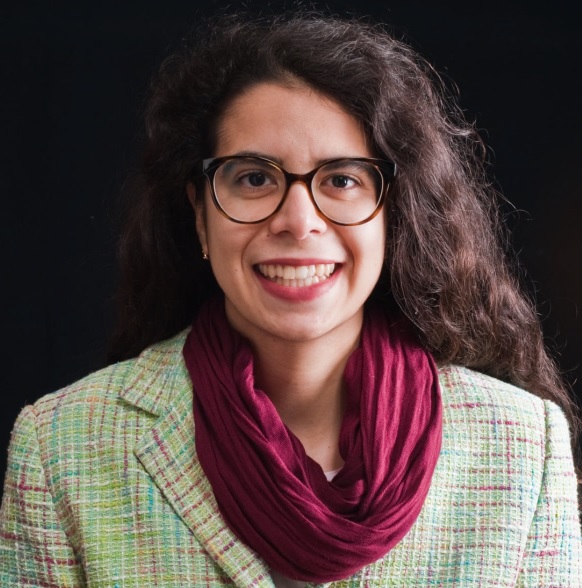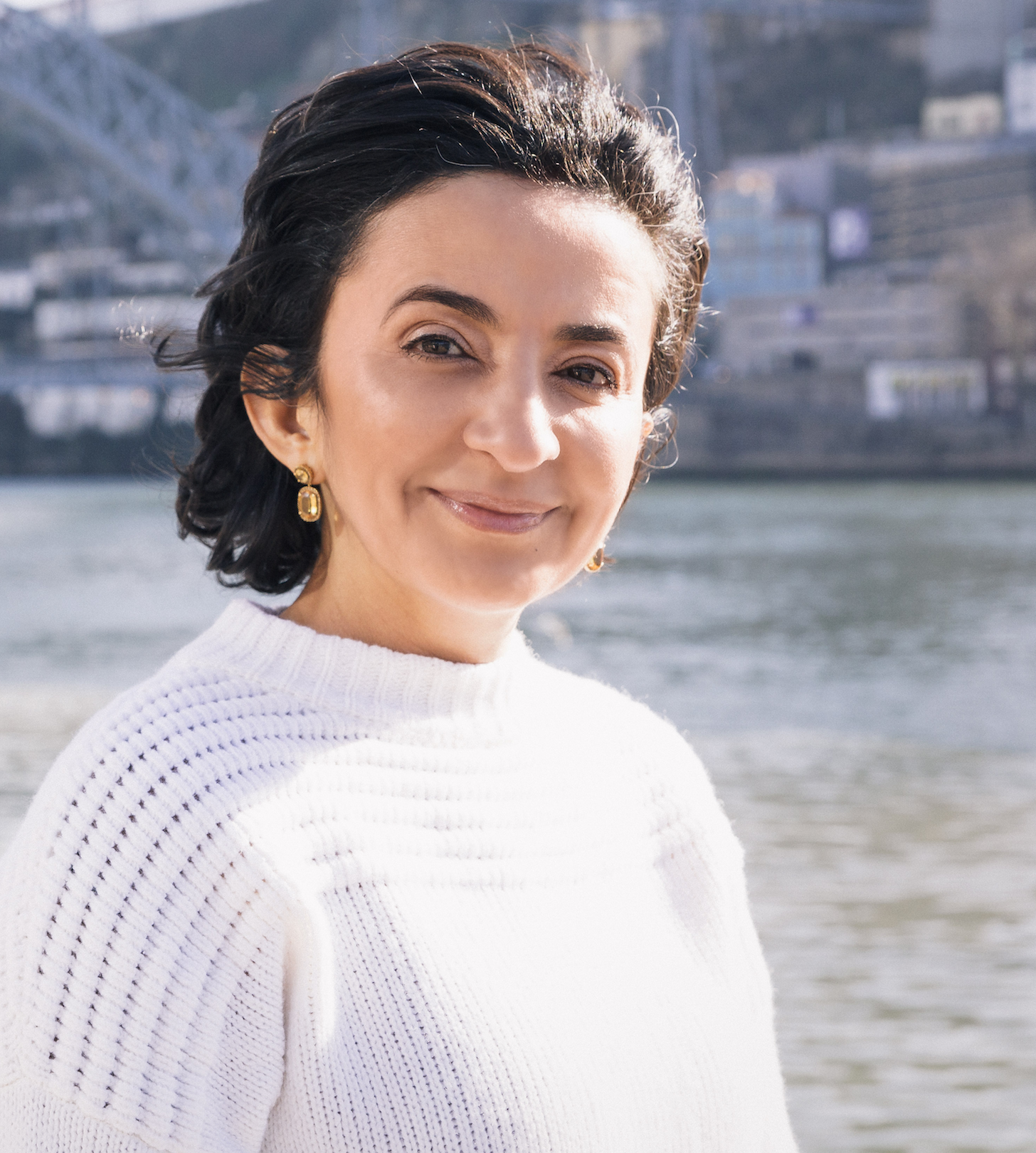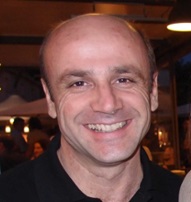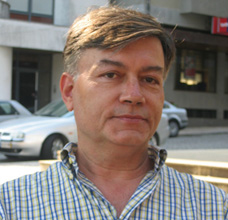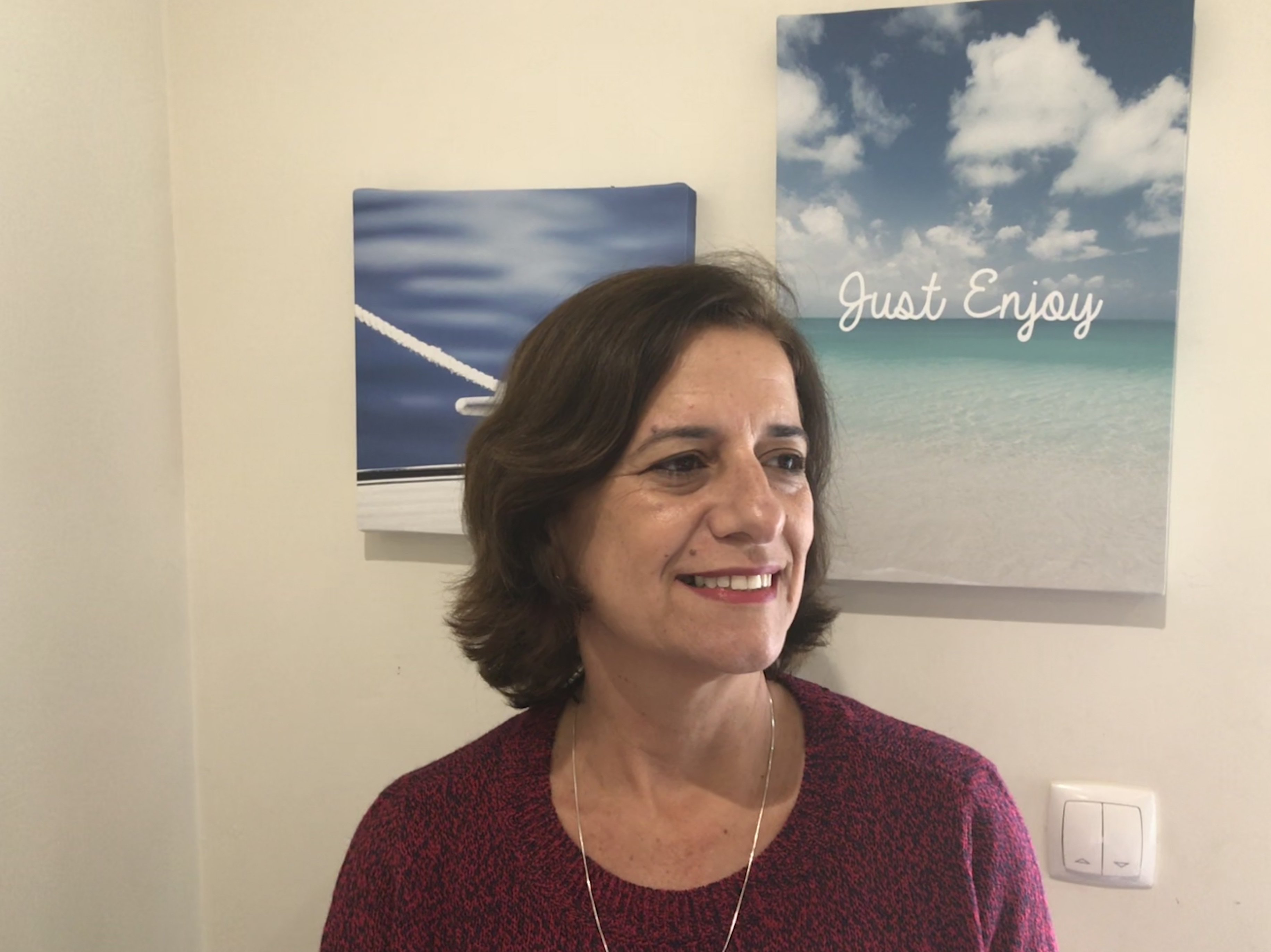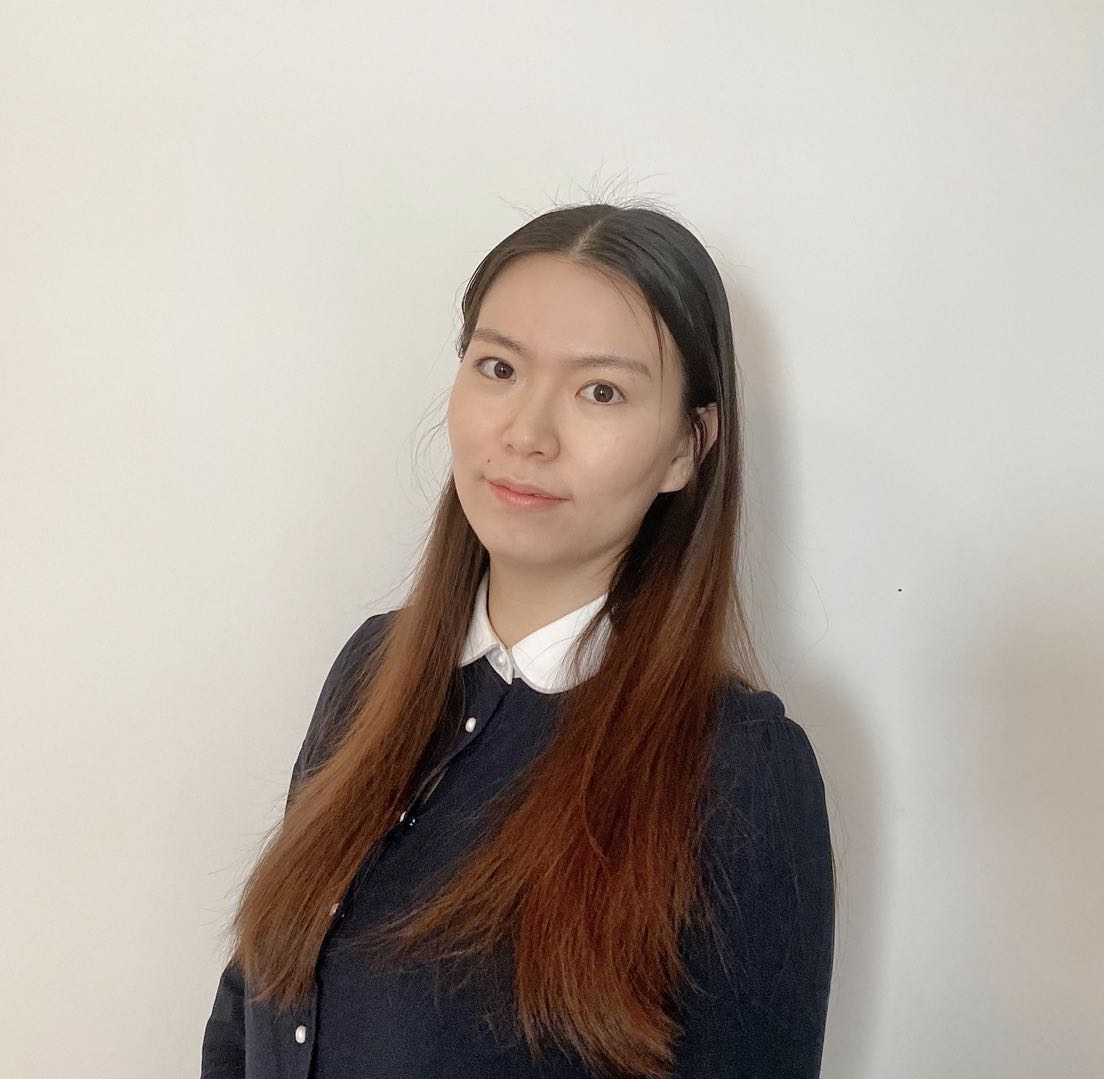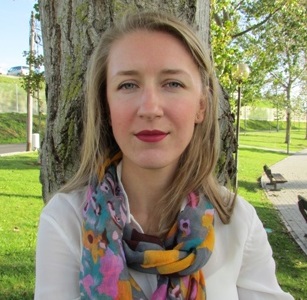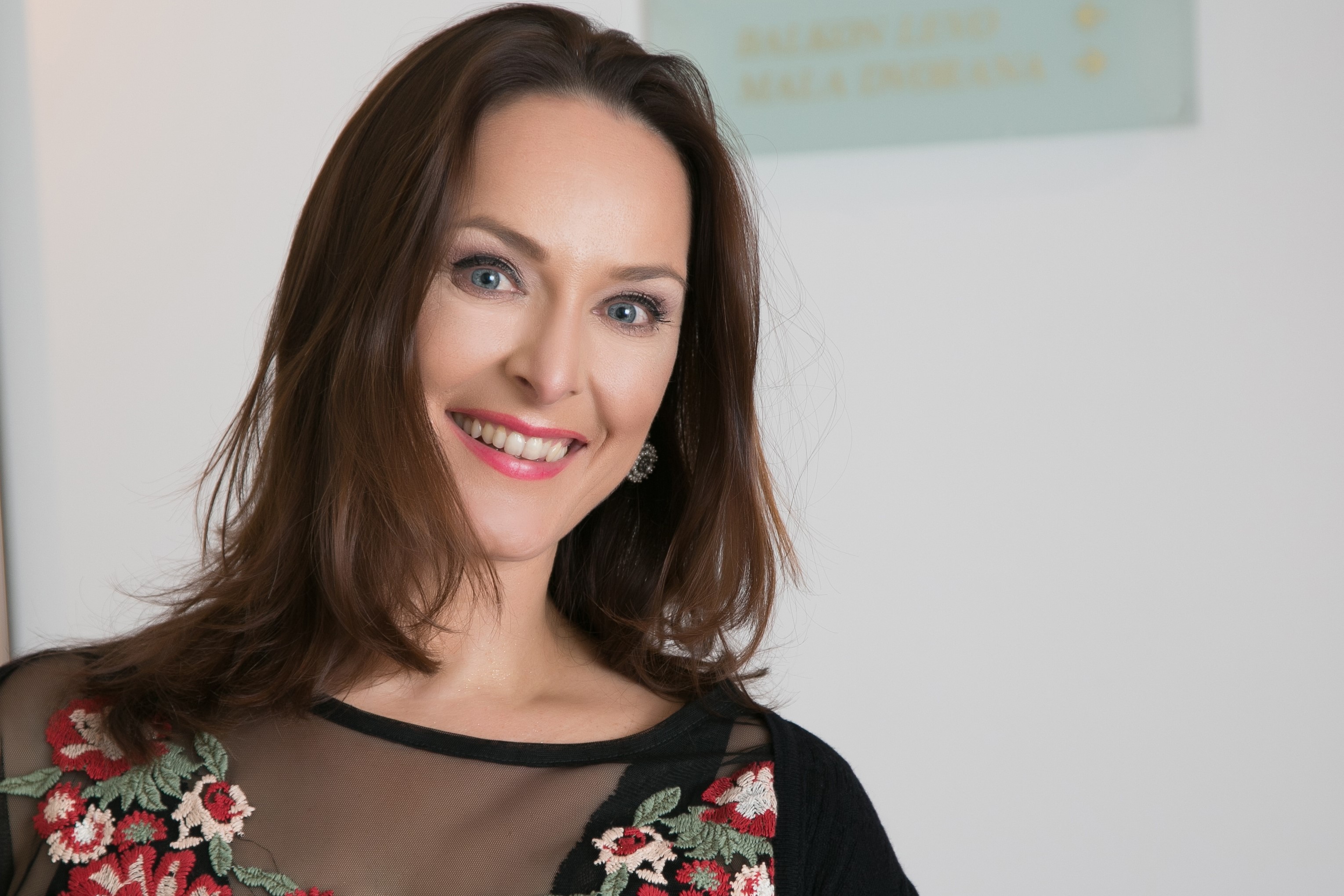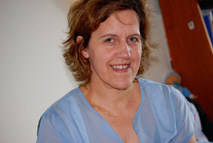Integrated Members
Member of the Grammar and Text group since 2011, she has been developing research work in the area of Semantics. She is currently a teacher at the Grupo de Recrutamento 300 (Portuguese/French) of Schools Grouping S. João do Estoril.
Bruna Bandeira holds a PhD in Text and Discourse Linguistics from the School of Social Sciences and Humanities of NOVA University Lisbon (NOVA FCSH), having been awarded a scholarship from the Portuguese Foundation for Science and Technology (FCT) (ref.: 2020.07501.BD). She holds a master’s degree in Linguistics from the Universidade Federal de Pernambuco (UFPE) in 2017; with a teaching certificate in Portuguese Language in 2015, and a bachelor’s in Journalism and Social Communication from the same institution (UFPE) in 2007. Between 2017-2019, she worked as substitute professor at the Portuguese Language Department at UFPE. She works in the area of Linguistics, within the branches of Text and Discourse, Portuguese Teaching and Learning, and Applied Linguistics. Her scholarly work focuses on Portuguese Teaching and Learning and linguistic knowledge from a socio-discursive interactionist perspective.
PhD from Université Paris 8 (Études Portugaises, Brésiliennes et de l´Afrique Lusophone) and from Minho University (Language Sciences, in cotutelle), she is a Guest Assistant Professor for the Department of Humanities at Universidade Aberta. She is an integrated researcher at Linguistics Research Centre of the Universidade NOVA de Lisboa (CLUNL), a member of the Research Group “Grammar & Text”, and a collaborating researcher at the Distance Education and eLearning Laboratory (Le@d) of the Universidade Aberta, where she is part of the El@n group (Teaching Languages Online). She has developed and published research papers in the framework of Semantics, Pragmatics and Discourse Analysis, with particular focus on political discourse, as well as in the area of teaching Portuguese as a foreign language.
Assistant Professor in the Linguistics Department of the Faculdade de Ciências Sociais e Humanas of Universidade NOVA de Lisboa and researcher at Centro de Linguística da Universidade NOVA de Lisboa. Being currently in charge of the database BILP-Bibliography of Portuguese Linguistics (http://bilp.clunl.fcsh.unl.pt/bilp/), has published several works in the area of word-formation, for the most part on productivity, compositionality and lexicalization, among other topics.
Clara Nunes Correia is PhD in semantics by Universidade NOVA de Lisboa. Currently she is Assistant Professor at the Linguistic Department in the same university. She is responsible for undergraduate and post-graduate semantics courses and her main research is developed on reference and on tense and aspect of Portuguese.
Associate Professor at School of Social Sciences and Humanities of NOVA University Lisbon (NOVA FCSH) and researcher at Linguistics Research Centre of NOVA University Lisbon (CLUNL). She has a PhD in Linguistics – Text Theory and is developing research within Grammar & Text research group. She is mainly interested in Socio-Discursive Interactionism theoretical and epistemological framework, focusing on the following issues: a differential description of text genres, the relationship between text genres and styles, teaching/learning grammar and text, writing and writing development, parity in language
PhD in Linguistics (Text and Discourse Linguistics) and MA in Linguistic Revision and Consultancy awarded by Universidade NOVA de Lisboa. She is a researcher at Centro de Linguística da Universidade NOVA de Lisboa and a member of the Grammar & Text research group. She carries out research on translation revision, privileging the articulation between the epistemological framework of Socio-Discursive Interactionism and Translation Studies. She has been working as a freelance translator and reviser for several years and completed an internship at the Directorate-General for Translation (Brussels). She is currently a guest lecturer at the Linguistics Department of NOVA FCSH.
Matilde Gonçalves, who holds a PhD from Université Paris 8 and Universidade NOVA de Lisboa, is an assistant professor at the Faculty of Social and Human Sciences of Universidade NOVA de Lisboa and a researcher at the Linguistics Centre of Universidade NOVA de Lisboa (CLUNL), where she works in the Grammar & Text group. Framed in text and discourse linguistics, particularly socio-discursive interactionism, her work focuses on language and mediation, the development of human beings throughout life through language practices, the relationship between social activities, genres and texts and scientific literacy.
PhD in Historical Linguistics from the School of Social Sciences and Humanities of NOVA University Lisbon. She is a member of the Grammar & Text research group at CLUNL. Her research focuses on the Historical Morphology of Portuguese, namely in the field of analogy and grammaticalization. Her other areas of interest are Historical Pragmatics, more specifically in the area of Courtesy. She has published works on Forms of Address and Morphology from a diachronic perspective. She has published work on Forms of Address and Morphology from a diachronic perspective. She has a degree in Modern Languages and Literatures – Portuguese and English Studies and a master’s degree in Historical Syntax of Portuguese from the Faculty of Letters of the University of Lisbon. She is currently a Visiting Assistant Professor at the FCSH and a Visiting Adjunct Professor at the Santarém School of Education. She also has extensive experience in teaching Portuguese (mother tongue and non-mother tongue).
Noémia Jorge is a researcher at the Linguistics Research Centre of NOVA University Lisbon and, currently, an Assistant Professor at Escola Superior de Educação e Ciências Sociais do Politécnico de Leiria (School of Education and Social Sciences of Polytechnic of Leiria). She has a PhD in Linguistics (specialist in Text and Discourse Linguistics) and her main research areas are text Linguistics and Portuguese Language Didactics.
Miguel Magalhães is a Ph.D. in Text and Speech Linguistics. He was a grant holder from Fundação para a Ciência e a Tecnologia within the KRUse programme. He has participated in several R&D projects and published several scientific papers in several national and international journals. Currently, his main areas of research are textual analysis, text mining and categorization. He also collaborates as a Portuguese foreign language teacher at the Universidade NOVA de Lisboa (NOVA FCSH/IMS) – Levels A1 to C2.
Isabelle Simões Marques holds a PhD in Linguistics – Discourse Analysis (co-supervised with Université Paris 8, France). She is an Assistant Professor at Universidade Aberta (Portugal). She is a PhD Researcher at UIDB-FCT nº 03213 at the Linguistics Centre of the NOVA University of Lisbon (CLUNL) and a Collaborating Researcher at UID-FCT nº 4372, Laboratory of Distance Education and eLearning (LE@D) – Universidade Aberta, where she coordinated the EL@N (Online Language Teaching) project. She is also a collaborating researcher at the Centre for Global Studies (CEG) – Universidade Aberta. She has developed and published research in the fields of (Critical) Discourse Analysis, Sociolinguistics and Foreign Language Teaching, and has also favoured studies on plurilingualism and migration.
Ana Sousa Martins holds a degree in Modern Languages and Literatures – Portuguese Studies from the Faculty of Arts of the University of Porto and a degree in Modern Languages – Anglo-American Studies from the Faculty of Arts of the University of Coimbra. She has a master’s and a Ph.D. in Portuguese Linguistics from the Faculty of Arts of the University of Porto. She conducted a Post-Doctoral project in Portuguese Second Language Acquisition, funded by FCT, at the Faculty of Arts of the University of Lisbon (Ref.SFRH/BPD/40498/2007). She is an integrated member of the Linguistics Center of the Nova University of Lisbon; author of 11 books (2 in linguistics research and didactics; 9 related to Portuguese as a Second Language teaching); and has presented 50 articles and communications at national and international conferences. She has served on various academic juries as the main arguer and as a member of the Scientific Committee of several international congresses. She is the founder and coordinator of the Ciberescola Project – Learning Portuguese as a Second Language: www.ciberescola.com
She holds a PhD in Portuguese Linguistics from NOVA University Lisbon and is an adjunct professor at the School of Education and Social Sciences of Portalegre Polytechnic University. She has conducted research, presenting papers, and publishing scientific articles in the fields of modality, evidentiality, verbal typologies, textual genres, and education. She teaches primarily in teacher training and journalism and communication courses.
PhD in Linguistics (specialization area in Text and Discourse Linguistics) from NOVA University Lisbon. She is a researcher at CLUNL and a member of the Grammar & Text Group. Prioritizing the theoretical and epistemological framework of Sociodiscursive Interactionism, she has developed research focused on the description and didatization of text genres. Currently, she is teacher and tutor at Universidade Aberta (Introdução aos Estudos Linguísticos e Técnicas de Expressão e Comunicação I) and a teacher of Portuguese language at Escola Profissional de Artes, Tecnologias e Desporto.
Assistant professor of Linguistics and director of the Mestrado em Estudos de Língua Portuguesa at Universidade Aberta, Lisboa. She is member of the Linguistics Research Centre of the Universidade NOVA de Lisboa, and also member of Grupo de Investigação Pragmática. Discurso. Cognição (PraDiC) do Centro de Estudos Humanísticos da Universidade do Minho. She collaborates on research projects at Laboratório de Educação a Distância e e-learning (LeaD) of the Universidade Aberta de Lisboa. Her PhD is in the area of Portuguese Linguistics and her current research focuses on pragmatics, discourse analysis, rhetoric, epistolary, discourse analysis of computer mediated communication and social and linguistic effects of digital technologies.
Researcher at the Linguistics Centre of NOVA University Lisbon, holds a PhD in Text and Discourse Linguistics, from NOVA University Lisbon. She develops research within the framework of Sociodiscursive Interactionism and has written articles on acting, the description and teaching of text genres, argumentation, writing, historicity of texts, among other topics. She is also a researcher in the HISTEL group, Historicity of Texts and Language Teaching (https://histel.com.br). She currently teaches at the School of Education of the Polytechnic Institute of Lisbon and at School of Education of the Polytechnic Institute of Setúbal as an adjunct guest teacher.
Helena Topa Valentim is an assistant professor at the School of Social Sciences and Humanities of the NOVA University Lisbon (NOVA FCSH) and a researcher at the Linguistics Research Centre of the NOVA University Lisbon. She has a PhD in Linguistics, specializing in Semantics, and conducts research in this scientific area and in Portuguese Linguistics as well as, more recently, in the Didactics of the Mother Tongue.
Collaborators
Ana Afonso graduated in Language Sciences at the School of Social Sciences and Humanities of the Universidade NOVA de Lisboa (NOVA FCSH) in 2016, having obtained the Merit and Excellence Award for best graduate. She completed a Master’s degree in Language Sciences at the same University in 2018. She worked as a linguist at Lionbridge in 2017-2018 and collaborated in the Clarin Project – Research Infrastructure for Science and Technology of Language. Currently, she is a PhD student in Linguistics at NOVA FCSH (grant holder 2021.08695.BD).
Margarida Cardigos Bastos holds a Master’s degree in Text Editing from the Faculty of Social and Human Sciences at NOVA University Lisbon, where she wrote her dissertation on the ethical indispensability of literature in the post-digital age. In 2020, she completed a BA in English with Creative Writing at Queen Mary University of London. She has been teaching English as a foreign language since 2019 and worked in content writing for international publications between 2021 and 2025. She occasionally writes opinion pieces for the digital magazine Reconhecer o Padrão.
With a degree in Portuguese and English Studies, by the University of the Azores, and a Master in Portuguese and Foreign Languages Teaching in the 3rd cycle of Basic Education and in Secondary Education, in the area of specialization of English, in NOVA University of Lisbon. She was a grant holder from the Portuguese Foundation for Science and Technology at the DiTo Project,
Assistant Professor at the Department of Languages and Literature in French, at the Faculty of Arts of the Agostinho Neto University (Angola) and researcher at CLUNL. He holds a Bachelor’s degree in Education Sciences, specialization in Linguistics/French, a Master’s Degree in Portuguese Language Teaching and a PhD in Linguistics and Language Teaching. He develops research in the field of Teaching of Mother Tongue and Foreign Languages. Giving privilege to the theoretical and epistemological framework of socio-discursive interactionism, his main interest is the teaching of writing through the genres of text.
Ana Filipa Fonseca is a PhD student in Language Sciences at the Faculty of Arts and Humanities, a researcher at the Centre of Linguistics of the University of Porto (CLUP) and the Linguistics Research Centre of NOVA University Lisbon (CLUNL), developing her PhD investigation in media discourse with a grant awarded by the Portuguese Science and Technology Foundation. Her research interests lie in text linguistics and semantics, focusing on science communication discourse and explanation. She is also a member of GICIL (Group of Researchers in Language Sciences), an association of CLUP.
Eduardo Paré Glück holds a PhD and a master’s degree in Applied Linguistics from the University of Vale do Rio dos Sinos, UNISINOS. He has completed his Sandwich PhD at the Linguistics Center of Universidade NOVA de Lisboa (CLUNL), under the guidance of Prof. Dr. Matilde Gonçalves (PDSE/CAPES Scholarship). He is a specialist in English Language Teaching Methodology from Universidade Paulista, UNIP. Graduated in Languages, with qualifications in Portuguese Language, English Language and Literature from UNISINOS. He is a researcher in the Science Communication: Linguistic and Technodiscursive Studies research group, coordinated by Profa. Dr. Maria Eduarda Giering, from UNISINOS, as well as Grammar & Text, coordinated by Profa. Dr. Antónia Coutinho, from NOVA FSCH. In addition, he serves as a member of the editorial board of the LER Project – Literature and Science and the scientific journal from Simon Fraser University, in Canada.
Audria Leal holds a PhD in Linguistics from Universidade NOVA de Lisboa, with specialization in text theory. She works as a researcher at CLUNL (Linguistics Research Centre of Universidade NOVA de Lisboa) and is also a member of the G&T Group (Grammar & Text). She develops work in the areas of Text and Discourse Linguistics, in which she favors the theoretical and methodological framework of the Sociodiscursive Interactionism, Applied Linguistics to Portuguese teaching, Enunciative Semantics and Social Semiotics with emphasis on the theoretical and methodological framework of the Grammar of Visual Design (Kress & Van Leeuwen). She is the author of several articles, both in Portugal and abroad, in which she analyzes the relationship between verbal and non-verbal language and its operation in multimodal texts.
With a degree in Languages, Literatures and Cultures, from NOVA University Lisbon – School of Social Sciences and Humanities, and a Master’s degree in Teaching of the 3rd Cycle of Basic Education and Secondary Education, in the specialization area of Portuguese and English. Presently, she is part of the DiTo Project, with a scholarship from the Portuguese Foundation for Science and Technology.
Sónia Mesquita holds a Master’s degree in Language Sciences (2021) from NOVA FCSH, with a specialization in Linguistics, and a Specialization in Translation Practices and Technologies (2024) from the Faculty of Letters of the University of Lisbon. She is currently a PhD student in Linguistics, specializing in Text and Discourse Linguistics at NOVA FCSH. She is carrying out research in the field of Linguistics and Translation.
Since 2007, she is PhD in Linguistics (Theory of Text) by Universidade NOVA de Lisboa. She is Professor at the Universidad Nacional de Rosario, Argentina and she is the coordinator of under graduation level on Portuguese for students of initial teacher training. She develops research on linguistics, and has published papers in the area of text analysis and textual genres, interlinguistic analysis (Portuguese-Spanish), and language teaching training. She was a post-doc grant fellow at CLUNL (2008-2013). At present she collaborates with CLUNL, mainly in the area of research of text genres.
Isabel Muniz-Lima graduated in Letters/Portuguese from Universidade Federal do Ceará (UFC). She later earned a Specialization in Portuguese Language Teaching from Faculdade 7 de Setembro (Fa7). Subsequently she earned a Master Degree in Linguistics from Universidade Federal do Ceará (PPGLIN / UFC). She is a simultaneous interpreter (Portuguese-French), having worked at an international event of the Brazilian Linguistics Association (ABRALIN). She is an Integrated Researcher at the “Protexto” Research Group and works as Assistant Editor of the journal “Entrepalavras”. She holds a PhD in Linguistics from Universidade Federal do Ceará (PPGLIN/UFC/CAPES) and NOVA University Lisbon (NOVA). Her main research interests focus on Textual and Applied Linguistics.
He worked for nine years in Guinea-Bissau on various projects related to teaching Portuguese, funded by Camões, I.P., including a lectureship at the Faculty of Law in Bissau and teaching at the Portuguese Cultural Centre in Bissau. He was awarded the distinction of best master’s student in Teaching Portuguese as a Second and/or Foreign Language at NOVA FCSH. As a doctoral student and FCT scholarship holder, he is conducting scientific work in the area of Language Policy and Planning, associated with Teaching Portuguese as a Second Language. He currently collaborates with CLUNL, as part of the Grammar & Text research group.
Âzar Renani holds a PhD in French Language Teaching (Tarbiat Modarres University, Tehran, 2016; PhD recognised by NOVA University Lisbon), a Master’s degree in Language and Subject Teaching, specialising in French as a Foreign, Second and Mother Tongue (University of Nice Sophia-Antipolis, 2017), and a Master’s degree in French Literature (University of Tehran, 2010), after completing a Bachelor’s degree in the same field (2007).
Between 2021 and 2025, she was an Invited Assistant Professor at the Universidade Aberta, an experience that reinforced her research in digital and distance learning. Since 2019, she has been a Lecturer at NOVA FCSH in Lisbon, having previously been a Lecturer at the University of Évora (2017–2018). She is a integrated member of the research group Le@D (Universidade Aberta), participating in the El@n — Online Language Teaching project. Her areas of research include FLE didactics, the use of Francophone literature and culture in language teaching, discourse analysis, semiotics — namely the semiotics of passions — and digital humanities.
PhD student in Linguistics (2020.05419.BD), specialization area in Historical Linguistics. Maria Ribeiro is developing her research project on the distinction “ser/estar” in Medieval Portuguese, under the guidance of Professors Clara Nunes Correia (NOVA FCSH) and Paulo Osório (FAL-UBI). Maria Ribeiro graduated in Philosophy at FLUL and has a Master degree in Language Sciences at NOVA FCSH. She is also a collaborator of the research group “Grammar & Text”.
Cláudia Ruas is a PhD candidate in Linguistics at the School of Social Sciences and Humanities of the NOVA University Lisbon, and works as a Portuguese teacher at the José Saramago School Group, in Palmela. She collaborates with the Linguistics Research Centre of NOVA University Lisbon (CLUNL). Her research focuses on the field of text and discourse linguistics, with particular attention to gender-sensitive language, discriminatory linguistic patterns, and textual reformulation from a socio-discursive approach.
Elinaldo Silva has a PhD in Linguistics at the Universidade Federal do Ceará/Brazil. He has a Master’s in Linguistics from the same university. He has a specialization in Teaching and Learning of Portuguese Language from the Instituto de Ensino Superior Franciscano. He has a degree in Languages from the Universidade Estadual do Maranhão. He is currently teaching in the Language Course at the Faculdade do Maranhão/FACAM. He was Pro-Rector of Teaching of the State Institute of Education of Maranhão/IEMA from 2015 to 2017 and Director of Teaching and Research of IEMA from 2017 to 2021, and, at the same time, a researcher in the Teacher Training Program of the Universidade Estadual do Maranhão with a scholarship from the Ministry of Education of Brazil. He is a member of the Group of Studies and Research in Applied Linguistics/GEPLA of the Postgraduate Program in Linguistics of the Federal University of Ceará and collaborator of the Grammar and Text/G&T Group of the NOVA University Lisbon. His main research interests lie in the area of Applied Linguistics, working mainly on Portuguese language teaching, written production and initial and continuing teacher training.
PhD in Portuguese Linguistics from Universidade Aberta (2006) and Master’s degree in Portuguese Linguistics from the Faculty of Letters, University of Coimbra (1997). Assistant Professor at Universidade Aberta (Department of Humanities), where he has been teaching Linguistics courses since 1995. His main research interests include text classifications, academic discourse genres, and academic writing.
PhD in linguistics from the Universidade Estadual de Campinas (UNICAMP). Post-doctoral studies at the Sorbonne Nouvelle University – Paris 3, the State University of Campinas (UNICAMP) and the NOVA University Lisbon. She is a full professor of Linguistics on the undergraduate course at the Institute of Letters and Linguistics (ILEEL) at the Universidade Federal de Uberlândia, in Brazil, and a professor and supervisor on the postgraduate programme in Linguistic Studies at the same university. Since 1994, she has been carrying out research into Ferdinand de Saussure’s theoretical production. She is the leader of the “Grupo de Pesquisa Ferdinand de Saussure – CNPq” (Ferdinand de Saussure Research Group) and coordinator of the “Grupo de Trabalho Estudos Saussurianos – ANPOLL” (Saussurian Studies Working Group).
Ana Sofia Souto has a Master of Arts degree in Language Sciences and a Bachelor of Arts degree in Portuguese Studies, both from NOVA FCSH, where she was awarded the “Mérito e Excelência Melhores Mestres” and “Mérito e Excelência Melhores Licenciados” prizes. She represented Portugal at the 16th Edition from ‘Jóvenes Líderes Iberoamericanos’ in Madrid, Spain. Since October 2020, she collaborates with the organization “Serviço Jesuíta aos Refugiados – Portugal”, where she works as a volunteer teacher of Portuguese level A1. She was a research grant holder from FCT (ref.: 2021.04523.BD), during is PhD in Text and Discourse Linguistics at NOVA FCSH. As part of her PhD, she co-founded the Discussion Group “Entre Textos: Diálogos Transatlânticos em Linguística do Texto e do Discurso”, which has been running since March 2021 and regularly brings together professors, researchers and students from both sides of the Atlantic around textual and discursive issues.
External Collaborators
PhD in linguistics. Postdoctorate studies at Universidade Nova de Lisboa (CLUNL). Assistant professor at Departamento de Letras do Centro de Ciências Aplicadas e Educação da Universidade Federal in Paraíba, Brazil. Professor at Mestrado Profissional em Rede Nacional – PROFLETRAS. Doctoral work and investigation in the following areas: grammar and teaching of the Portuguese language; literacy and writing; linguistic variation and teaching.
PhD in Linguistics, specialization area in Text and Discourse Linguistics, supervised by Professor Maria Antónia Coutinho. She holds a master’s degree in Portuguese Language Studies – Research and Teaching (by Universidade Aberta); a master’s degree in Portuguese and German Teaching (by Faculdade de Letras da Universidade de Coimbra); and a degree in Modern Languages – Portuguese/German (by Faculdade de Letras da Universidade de Coimbra). She conducts her research in the sociodiscursive interactionism framework.
Manuel Luís Costa has a PhD degree in Linguistics. He is a researcher at Linguistics Research Centre of the Universidade NOVA de Lisboa (CLUNL) and member of the Research Group “Grammar & Text”. His research activities and publications are mainly on Semantics, with particular focus on the semantics of prepositions (aspect, telicity, paths, boundedness and topology). He is a High School teacher at Escola Básica e Secundária Padre Alberto Neto (Queluz).
Patrícia Dominguez has a bachelor degree in Philology from the Universitat de Barcelona, and a PhD in Linguistics, specialization area Discourse Analysis, from NOVA University Lisbon. Her main interests of research are political discourse and social communication.
José Pinto de Lima graduated in Germanic Philology at the University of Lisbon, where he started as a lecturer in 1977, From 2003 to 2007 he was a researcher of the CEAE, Centro de Estudos Alemães e Europeus. Since 2007 he is a researcher of the CECC, Centro de Estudos de Comunicação e Cultura (FCT), in the Research Line “Translating Europe Across the Ages”. From 2008, he is also a collaborator of CLUNL, the Linguistics research Centre of Universidade NOVA de Lisboa, in the Research Group “Grammar & Text”. At present, his main area of research is the theory of grammaticalization and language change, mainly of the Portuguese and German languages. He is a member of the Nominating Committee of the Societas Linguistica Europaea, and was the Local Organizer of the 42nd International Conference of the SLE, which took place at the University of Lisbon in September 2009.
Célia Regina dos Santos Lopes is Associate Professor at the Federal University of Rio de Janeiro (Brazil). Her teaching and research interests are historical sociolinguistics and grammaticalization in the pronominal system of Brazilian Portuguese. In 2018, published, in Brazil, the book Mudança Sintática das Classes de Palavra: Perspectiva Funcionalista by Contexto Editora (co-edited with Ataliba Castilho). Other recent publications include two chapters published in “The Handbook of Portuguese Linguistics” released by Wiley-Blackwell (“History and Current Setting” and “Main Morphosyntactic Changes and Grammaticalization”).
Mingshuang Lu completed the Master in Portuguese / Chinese Intercultural Studies at the University of Minho (2014-2016) with a dissertation entitled “The teaching and learning of Portuguese in China and Chinese in Portugal. Comparative study at the undergraduate level”. Currently, she is a PhD student in Translation and Terminology at Universidade NOVA de Lisboa (partnership program with the University of Aveiro). She developed a PhD thesis entitled “Genres in the journalistic sphere: comparative study between Chinese and Portuguese”, under the supervision of Professor Matilde Gonçalves and Professor Wang Suoying. Her investigation is situated within the theoretical framework of Sociodiscursive Interactionism.
Jasmina Markič, PhD, Professor of Spanish Language at the Faculty of Arts, University of Ljubljana, Slovenia. Her teaching and research work and interests are aspects of Spanish syntax (mainly the verb and its aspectual and temporal values), American Spanish, contrastive studies of Spanish, Portuguese and Slovene, theoretical and practical problems of conference and court interpreting and translation. She is author, co-author and editor of several articles and books dealing with these subjects, of bilingual dictionaries Spanish-Slovene and Slovene-Spanish. She has been teaching as a visiting professor at different universities and participating in national and international projects. She is editor of the scientific journal “Verba Hispanica”.
Associate Professor with aggregation at the Department of Portuguese and Lusophone Studies, Institute of Arts and Humanities, University of Minho, Portugal. She is a researcher at CEHUM, the Centre for Humanistic Studies at the University of Minho, and her main research areas are discourse analysis, with special emphasis on political, journalistic and everyday oral discourses.
PhD in Language Sciences (since 2000), specialization area of Portuguese Linguistics, from the University of Minho, she has participated, as coordinator and team member, in research projects in these areas, has supervised Master’s, PhD and post-doctoral studies, and has written papers in national and international publications.
Assistant professor at University of Aveiro (Department of Languages and Cultures). PhD in Linguistics (Semantics) at Universidade NOVA de Lisboa, School of Social Sciences and Humanities (2005). Research work on semantics in an enunciative theory framework (mainly in the Theory of Predicative and Enunciative Operations). Other research fields: translation, applied linguistics.
PhD in Linguistics by NOVA University Lisbon, has developed her thesis in the area of Text and Discourse under the supervision of Professor Maria Antónia Coutinho and as a grant holder financed by FCT (Fundação para a Ciência e a Tecnologia), within the KRUse program (Knowledge, Representation & Use), with the reference PD/BD/105766/2014. Has a Master´s degree in Linguistics, awarded by Moscow State Linguistic University and later recognized by University of Minho in Portugal.
Lector in Modern Portuguese Language in the Department of Romance Languages and Literatures of the Faculty of Arts of the University of Ljubljana, Slovenia, and researcher at Centro de Linguística da Universidade Nova de Lisboa as member of the Research Group “Grammar & Text”. Her PhD is in the area of Portuguese and Spanish Linguistics and her current researches focuse mainly on tense and aspect of Portuguese in contrast with Slovene.
She is a researcher of the Grammar & Tex group, and develops work mainly in the domain of text theory. At present she is an Adjunct Professor at the Instituto Superior de Ciências Educativas, where she teaches Portuguese language and Linguistics courses for initial teacher training students.
Sónia Valente Rodrigues is Assistant Professor at the Faculty of Arts of the University of Porto and researcher at the Centre of Linguistics of the University of Porto. Her research areas are Pragmatics, Textual Linguistics, Discourse Analysis and Educational Linguistics. She has been involved in projects concerning these areas. She published several peer-reviewed articles in national and international journals, conference proceedings, book chapters and handbooks.
Alexandra Ruivo holds a Degree in Modern Languages and Literatures – Portuguese/English (University of Coimbra). Teacher of Basic and Secondary Education since 1986, she belongs to the Schools Grouping Augusto Cabrita, where she held three mandates in school management. PhD in Languages Teaching – Multilinguism and Education for a Global Citizenship at Universidade NOVA de Lisboa and Universidade Aberta, she developed her research in first language teaching, specially focused on poetry, under the supervision of Professor Maria Antónia Coutinho.
Assistant Professor in the Department of Languages, Literatures and Cultures in the Faculty of Arts of the University of Coimbra (UC) – PhD in Portuguese Linguistics (UC). Her main research interests are: (i) PL1 and PL2 academic writing teaching and learning (e-learning and instructional materials); (ii) students’ writing corpora building; (iii) analysis of stylistical and sentence structures, lexical and semantic choices in different academic genres (abstracts, PhD theses and research articles).
Menu
- Projects
- Ongoing projects
- SPELL2 – Synchronizing Perceptual and Lexical Abilities in Second Language Acquisition
- Escola da Palavra: (re)significar a vida pela palavra
- MultiPoD – Multilingual and Multicultural Spaces for Political Deliberation
- HEREDITARY – HetERogeneous sEmantic Data Integration for guT-brAin interplay
- TTC-CPLP – Terminologias Técnicas e Científicas para a CPLP
- CHAMUÇA – Portuguese and South Asian Lexicon Archive
- DiTo – Didática do Texto
- REDGRAM – Digital Resources for Education – Grammatical Pathways
- iRead4Skills – Intelligent Reading Improvement System for Fundamental and Transversal Skills Development
- Investigating the impact of implicit and explicit instruction on phonological acquisition in a second language
- LAUA – Language Attrition and Ultimate Attainment
- CORRELATE – Corpora and Lexical and Terminological Resources
- TERMVEST – The Clothing Terminology: European Portuguese version
- POR Nível – Design and validation of a placement test to PFL
- Cultural Heritage Lexicon
- Concluded projects
- EPISTRAN – Epistemic Translation: Towards an Ecology of Knowledges
- NObarriers2Health: Reducing language and cultural barriers through machine translation literacy for inclusive multilingual health communication
- Heritage Languages go to School: The interplay of (extra)linguistic factors in successful language development
- ProPerL2 – Production and Perception in L2 speech learning
- Active Citizenship Through Dialogue in Virtual teacher communities
- ANACOREX – Anafora y expresiones referenciales en el bilinguismo: triangulando enfoques de corpus y experimentales
- G&T.Comenta
- Language and literacy at school – the contribution of metasyntactic abilities to reading comprehension development
- EXPRIMI
- LL2DS – Linking Linguistics to Data Science
- MorDigital – Digitisation of Diccionario da Lingua Portugueza by António de Morais Silva
- Humanities Going Digital (HUGOD)
- QuILL – Quality in Language Learning
- Western Sephardic Diaspora Roadmap
- Caring Communication: gene therapy in the context of hemophilia
- Monitor Corpora. PressCoronaVírus
- COVID-19 Collaborative Glossary
- Com@Rehab – Communication for interactive rehabilitation in virtual reality
- Project GiroFLE
- OrthoDef
- PIPALE – Preventive Intervention Project for Learning to Read and Write
- Digital Edition of the “Vocabulário Ortográfico da Língua Portuguesa” (VOLP-1940)
- Read4Succeed: Improving migrant, refugee and from deprived neighbourhood children reading skills through an Animal Assisted Reading program
- CoRaLHis – Comparing Romance Languages through History: building a multilingual parallel diachronic corpus (13th-18th C.)
- Corpus Linguístico & Avatar para a Língua Gestual Portuguesa
- ELEXIS – European Lexicographic Infrastructure
- MOCOLANG-O – MOdélisation COnceptuelle des troubles (du LANGage et de la communication) en Orthophonie
- ANACOR: A corpus-based approach to anaphora resolution in second language acquisition: beyond the interfaces
- European Portuguese-Standard Arab Dictionary
- Romance clitics in diachrony. An integrated approach
- Portuguese Literature Corpus for Distant Reading
- ALPROF – Automatic Assessment of Language Proficiency for Migrant Integration
- CLARIN CLUNL
- Utopia, Food and the Future
- Development of syntactic structures in Portuguese and French monolingual and bilingual acquisition
- The Case of Grammatical Relations
- BlackBox – a Collaborative Platform to Document Performance Composition: from conceptual structures in the backstage to customizable visualizations in the front-end
- Promotion of scientific literacy
- PerGRam – Percursos para o ensino da gramática nos primeiros anos de escolaridade
- Knowledge Organisation Proposal within the scope of infertility: the role of Terminology
- Subordination in Medieval Portuguese
- Crosslinguistic and Crosspopulation approaches to the Acquisition of Dependencies
- Syntactic and lexical factors in processing complexity
- SIERA – Integrating Sina Institute into the European Research Area
- Syntactic Dependencies from 3 to 10
- Events and subevents in Capeverdean
- TKB – Transmedia Knowledge Base for Contemporary Dance
- Research network projects
- ELEXIS Association
- PhraConRep – A Multilingual Repository of Phraseme Constructions in Central and Eastern European Languages
- Y-JustLang – Justice to youth language needs
- ENEOLI – European Network On Lexical Innovation
- Consortium Huma-Num ARIANE
- GRAFE’Maire
- e-Term ANCV – Recurso terminológico jurídico-parlamentar digital Assembleia Nacional de Cabo Verde
- Metalex – International Metalexicography Network
- @ Cientista Regressa à Escola
- CLIL in Languages Other Than English
- NexusLinguarum – European network for Web-centred linguistic data science
- Distant Reading for European Literary History
- HL2C – Heritage Language Consortium
- KEYSTONE – Semantic Keyword-Based Search on Structures Data Sources
- ARLE – International Association for Research in L1 Education
- ENeL – European Network of e-Lexicography
- GraMaLL – Grasping Meaning Across Languages and Learners
- Language Impairment in a Multilingual Society: Linguistic Patterns and the Road to Assessment
- GIRTraduvino – Grupo de Investigación Reconocido sobre la Lengua de la Vid Y el Vino y su Traducción
- Value for Health CoLAB
- Infrastructures
- Services provision
 PT
PT

